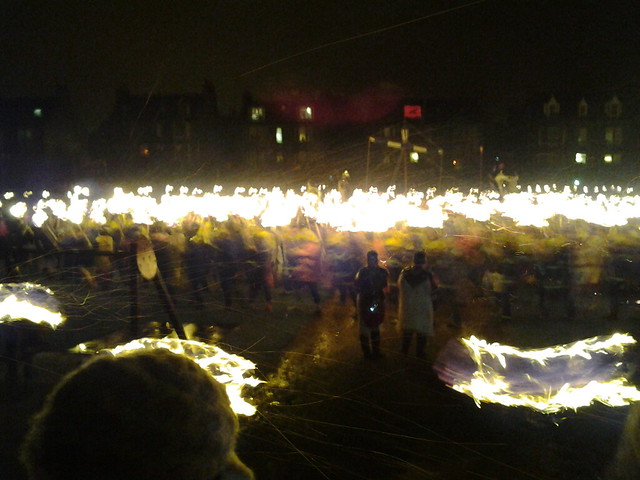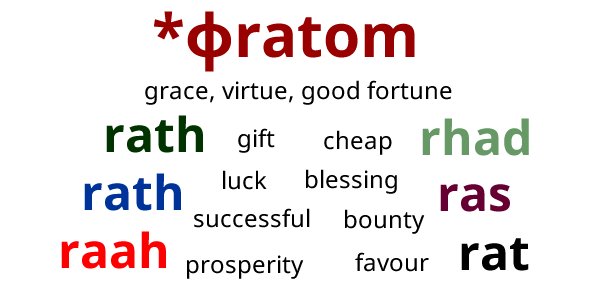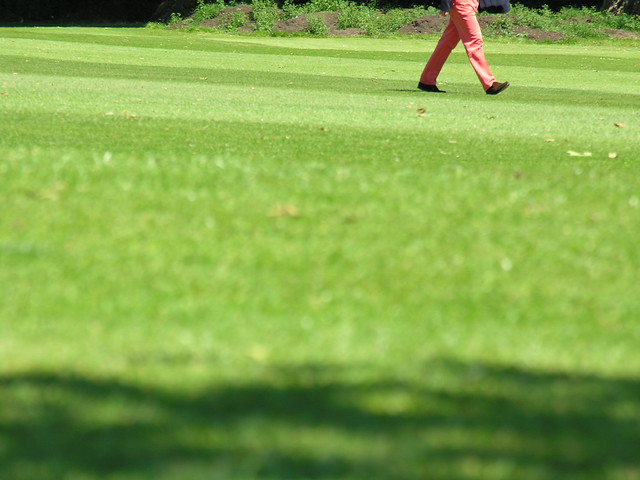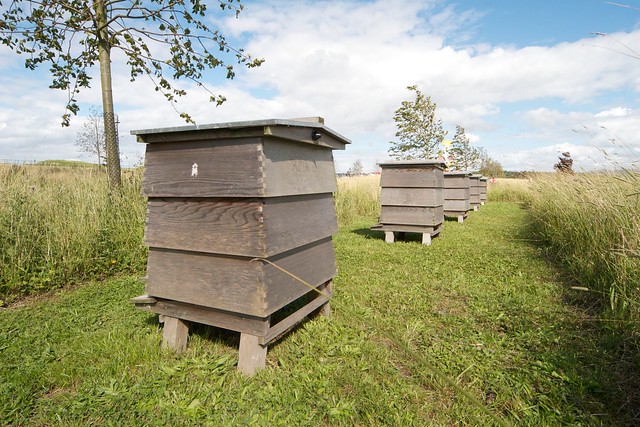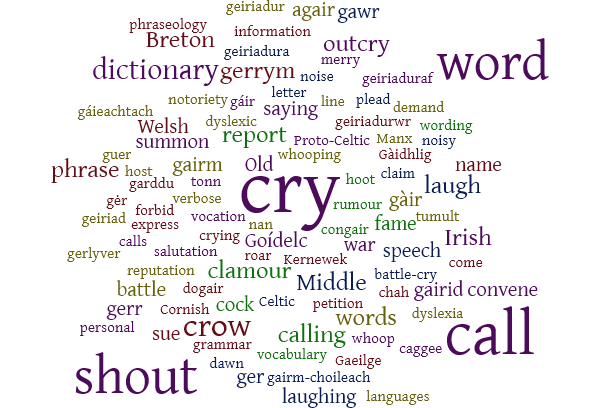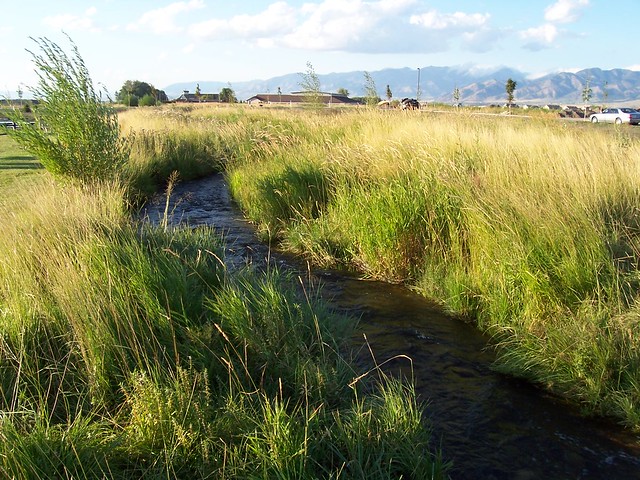Words for heat, warmth and related things in Celtic languages.
Words marked with a * are reconstructions.
| Proto-Celtic | *texstus = heat |
|---|---|
| Old Irish (Goídelc) | tess = heat, warmth |
| Middle Irish (Gaoidhealg) | tess, tes = heat, warmth, sultriness, fervour, zeal aintes = excessive heat tesbach, teasbhach = heat, warmth, sultriness, ardour, fury, illess, fever tessach = feverish heat, fever tessaide = hot, warm, sultry tessaigid = to warm, heat |
| Irish (Gaeilge) | teas [tʲasˠ/tʲæsˠ] = heat, hotness, warmth; warm clothing, warm place; degree of hotness; high temperature, feverishness; ardour, passion; hottest, highest, stage teasach = feverish heat, fever teasaí = hot, warm; ardent, passionate; hot feverish; hot-tempered, fiery teasaíocht = heat, warmth; ardour, passion; feverishness; hot temper, fire teasaire = heater |
| Scottish Gaelic (Gàidhlig) | teas [tʲes] = heat, hotness; temperature; heating (in metallurgy) teas-mheidh = thermometer teasach = fever, restlessness (caused by heat), mo(u)lt; thermal teasadair / teasraiche / teasachan = heater |
| Manx (Gaelg) | çhiass = heat, warmth çhiassveih = thermometer çhiasseyder = radiator, heater, warmer çhiassid = hotness, temperature çhiassagh = febrile, feverish |
| Proto-Brythonic | tes = heat, warmth |
| Middle Welsh (Kymraec) | tes = heat, warmth |
| Welsh (Cymraeg) | tes [teːs] = heat (of the sun), warmth, (period of) warm weather, sunshine, (heat) haze, mist cynes [ˈkənɛs] = warm (from cyn (co-) and tes) tesaint = passion, zeal; heat, warmth teser = (heat) haze tesiad = a warming tesio, tesiaf = to shine (of the sun) tesog = hot, sunny, close sultry |
| Old Cornish | tes = heat |
| Middle Cornish (Cernewec) | tes = heat, warmth |
| Cornish (Kernewek) | tes = heat tesa = to heat tesek = hot tesel = thermal |
| Old Breton | tes = heat |
| Middle Breton (Brezhonec) | tez, tès = heat |
| Breton (Brezhoneg) | tes = heat |
Etymology: from the Proto-Indo-European *tep- (to be warm, to be hot) [source]. Celtic words from fire come from the same PIE root via the Proto-Celtic *teɸnets (fire) [source]
The English word tepid comes from the same PIE root [source].
| Proto-Celtic | *teɸents = heat |
|---|---|
| Old Irish (Goídelc) | té, tee [tʲeː] = hot, warm; lustful, wanton; comfortable, sheltered; fervent; fierce, keen |
| Middle Irish (Gaoidhealg) | té, te = warm, hot, comfortable, sheltered, fervent, fierce, keen, bold |
| Irish (Gaeilge) | te [tʲɛ] = hot, warm; pungent; ardent, hot-tempered, vehement, hotfoot; affectionate, comfortable teobhlasta = hot (spicy) teochroí = warm-heartedness, warmth, affection teochroíoch = warm-hearted teocht = warmth, heat, temperature teofholach = warm-blooded alathe = lukewarm téamh = heating, warming, distillation |
| Scottish Gaelic (Gàidhlig) | teth [tʲeh] = hot ain-teth = scorching, exceedingly hot, ardent, vehement, eager, inflamed |
| Manx (Gaelg) | çheh = fevered, fervent, heated, hot, impassioned, passion, sexually precocious, thermal, warm çhiow = to warm up, warm, warming up, inclined, yearned, heat,warmed |
Etymology from the Proto-Indo-European *tep- (to be warm) [source].
| Proto-Celtic | *gʷrensos, *gʷrīnnso- = heat |
|---|---|
| Old Irish (Goídelc) | grís = heat (of the sun), fire, embers |
| Middle Irish (Goídelc) | grís, gríss = heat, fire, embers, hot ashes; glow, ardour, valour, passion |
| Irish (Gaeilge) | gríos [ɡɾʲɪsˠ] = hot ashes, embers; heat, glow, ardour; rash, blotches (on skin) gríosach = glowing gríosóg = spark from embers, inflamed spot, rash gríosóir = inciter, agitator gríostaitneamh = burning, rosy, glow gríosú = inflammation, incitement, stimulation |
| Scottish Gaelic (Gàidhlig) | grìos [grʲiːs] = begging, entreaty; heat, embers, redness, inflammation, provocation grìosad [grʲiəsəd] = begging, beseeching, entreating, cursing, swearing, stirring up a fire, provoking |
| Manx (Gaelg) | gree [ɡriː] = heat greeshagh = arouse (passions), arousing, vibrant, ember greeshaghey = to aggravate, chivvy, set on, whip up, arouse (passions) |
| Middle Welsh (Kymraec) | gwres, ywres, gỼres = heat, warmth guressaei = to heat, warm guressauc, gwressawc = hot, very warm gwresoca, gwresogi = to make warm or hot |
| Welsh (Cymraeg) | gwres [ɡwreːs] = heat, warmth, hot weather, feverishness, itching; intensity (of feeling), passion, lust, vehemence, ardour, fervour, zeal, enthusiasm gwresâf, gwresáu = to heat, warm gwresio, gwresu = to become heated, heat, generate heat, emit warmth gwresog = hot, very warm, summery, heat-giving, calorific gwresogi = to make warm or hot, provide warmth, heat |
| Middle Cornish (Cernewec) | gwres = heat |
| Middle Breton (Brezhonec) | groès, groës = heat |
| Breton (Brezhoneg) | gwrez = heat, temperature, ardent, fervent, blazing gwrezus = calorific gwrezverk = temperature |
Etymology possibly from the Proto-Indo-European *gʷʰer- (warm, hot) [source]. English words from the same PIE root include furnace, gore, thermal and warm [source].
| Proto-Celtic | *teɸesmis/*tefesmi- = heat |
|---|---|
| Middle Welsh (Kymraec) | tui, tvymyn, tỼym, twym [tuːɨ̯m/tʊi̯m] = warm, (quite) hot, infectious, fervent, intense, passionate, heated, unpleasant, dangerous, heat, fever twymna, tỼymaỼ, twymo = to make/become warm or hot twymder = warmness, warmth, hotness, heat twymyn = fever |
| Welsh (Cymraeg) | twym [tuːɨ̯m/tʊi̯m] = warm, (quite) hot, infectious, fervent, intense, passionate, heated, unpleasant, dangerous, heat, fever twym(n)af, twym(n)o = to make/become warm or hot, to warm, to heat, to ferment twymder = warmness, warmth, hotness, heat twym(n)wr, twymydd = person or thing that warms, heater twymyn = fever, warm drink |
| Old Cornish | toim, tum = hot, warm, heated |
| Middle Cornish (Cernewec) | tom = hot, warm tomder = heat, warmth tomma = to make warm, to warm tubm = hot, burning tubma = to make hot, to heat, to warm |
| Cornish (Kernewek) | tomm, tobm = hot, warm tomm y wos, tobm y woos = hot-blooded tomma, tobma = to warm, become warm tommhe, tobmhe = heat, warm tommheans, tobmheans = heating tommheans ollvysel, tobmheans ollvesel = global warming |
| Middle Breton (Brezonec) | tomm, toem, tuem = hot, warm, heat toemaff, tomaff = to heat, to warm up toemder, tomder = heat |
| Breton (Brezhoneg) | tomm [tɔmː] = hot, warm tommañ = to heat, to warm up, to be fond of, to become attached to tommder = heat tommerez = stove tommerezh = boiler room |
Etymology: from the Proto-Indo-European *tep- (to be warm, to be hot) [source]. Words for fire in Celtic languages come from the same root.
| Proto-Celtic | *brutus = fermentation, boiling heat |
|---|---|
| Old Irish (Goídelc) | bruth [bruθ] = boiling, fury, glow, heat, rage, vehemence |
| Middle Irish (Goídelc) | bruth = (boiling) heat, blaze, glow, anger, fury, excitement, fervour, valour bruthach = fiery, furious, vigorous bruthmar = fiery, raging, furious, ardent |
| Irish (Gaeilge) | bruth [bˠɾˠʊ(h)] = heat, rash, eruption, nap, pile, covering, surf bruthach = hot, fiery, napped, fluffy bruthaire = cooker bruthán = (slight) rash brufar = ardent, fiery, lively |
| Scottish Gaelic (Gàidhlig) | bruth [bruhθ] = hotness (of skin), hot and confined space, red-hot object, heat, fire bruthainn [bruhɪn̪ʲ] = sultriness, sultry heat bruthairneach [bruhər̪n̪ʲəx] = muggy, sultry, sweltry bruich = to cook, boil |
| Manx (Gaelg) | brooan = rash, eruption, skin disorder |
| Old Welsh | brut = hot, warm |
| Middle Welsh (Kymraec) | brytt, brwt, brwd = hot, warm, heat brytio = to heat, warm, boil |
| Welsh (Cymraeg) | brwd [bruːd] = hot, warm. heated, ardent, boiled, fervent, zealous, heat, brew(ing), brwdfrydu = to enthuse, speak or feel with fervour brwdfrydedd = zeal, enthusiasm, fervour, fanaticism brwdfrydig = zealous, enthusiastic, fervent, ardent brwdias = hot, heated, fiery, parboiling brydio = to heat, warm, boil |
| Old Cornish | bredion = to boil |
| Middle Cornish (Cernewec) | bredion, bridzhen = to boil |
| Cornish (Kernewek) | bryjyon = to boil bryjys = boiled |
| Old Breton | brot = ember |
| Middle Breton (Brezonec) | broud = ember, excitement |
| Breton (Brezhoneg) | broud [bruːt] = ember, excitement broudañ [bruˈdɑːdɛn] = to burn, scald broudus [ˈbruːdys] = stimulant |
Etymology: from the Proto-Indo-European *bʰrewh₁- (to boil, brew), from *bʰer- (to boil) [source]. Words for the same roots include bread, brew, broth, burn and fervor in English [source].
| Proto-Celtic | *kʷoxtos = cooked, hot |
|---|---|
| Proto-Brythonic | *poɨθ [ˈpoɨ̯θ] = cooked, hot |
| Middle Welsh (Kymraec) | poeth = hot, burning poethi = to heat, warm, burn, scorch, roast |
| Welsh (Cymraeg) | poeth [poːɨ̯θ/pɔi̯θ] = hot, burning, fervent, intense, lustful, roast, cooked poethaf, poethi = to heat, warm, burn, scorch, roast poethder = heat, hotness, burning, inflammation, ardour, zeal, fervour poethineb = passion, ardour, zeal, hot-headedness |
| Middle Cornish (Cernewec) | poth = hot |
| Cornish (Kernewek) | pooth = hot, scorching potha = to heat, scorch |
| Middle Breton (Brezonec) | poaz = cooked, grilled, burning poazat, poazet = to cook, bake |
| Breton (Brezhoneg) | poazh [bruːt] = cooked, burned, burning poazhadur = cooking, baking, roasting poazhañ = cooking, baking, roasting poazhat = cooked poazherez = cooker |
Etymology: from the Proto-Indo-European *pokʷ-tó-s from *pekʷ- (to cook, ripen) [source]. Words for the same roots include apricot, biscuit, cook, cuisine and kitchen in English [source].
Words marked with a * are reconstructions.
Sources: Wiktionary, Am Faclair Beag, Online Manx Dictionary, Teanglann.ie, eDIL – Electronic Dictionary of the Irish Language, In Dúil Bélrai English – Old Irish glossary, Geiriadur Prifysgol Cymru, Gerlyver Kernewek, Lexicon Cornu-britannicum: A Dictionary of the Ancient Celtic Language of Cornwall, Dictionaire Favereau, TermOfis, Le dictionnaire diachronique du breton, Etymological Dictionary Of Proto Celtic
